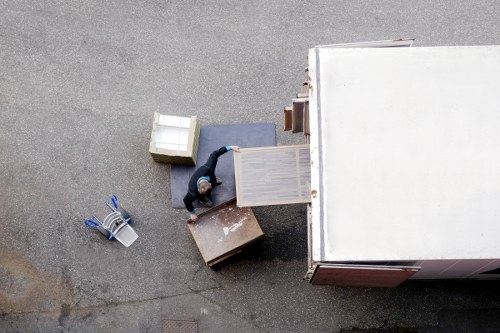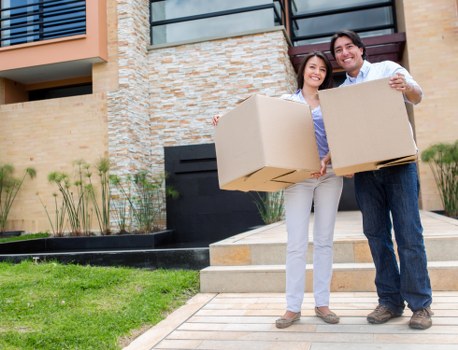Effective Waste Disposal Solutions in Luton

Managing waste effectively is crucial for maintaining a clean and healthy environment in Luton. With the growing population and increasing consumption, the need for efficient waste disposal systems has never been more important. This article explores various aspects of waste disposal in Luton, providing insights into best practices, available services, and how residents can contribute to a sustainable future.
Proper waste disposal helps in reducing pollution, conserving resources, and preventing the spread of diseases. Luton has implemented several initiatives to address these challenges, aiming to minimize the environmental impact of waste. Understanding the different types of waste and the appropriate disposal methods is essential for both individuals and businesses.
In Luton, waste is categorized into household waste, commercial waste, hazardous waste, and recyclable materials. Each category requires specific handling and disposal techniques to ensure safety and compliance with environmental regulations. This guide will delve into each category, offering practical advice and resources available to the community.
Household Waste Disposal in Luton

Household waste, often referred to as domestic waste, includes everyday items discarded by residents. Common household waste comprises kitchen scraps, packaging materials, paper, plastics, glass, and residual waste. Effective management of household waste is fundamental to maintaining community health and environmental quality.
The Luton Borough Council provides residents with regular waste collection services, ensuring that refuse is collected promptly and disposed of responsibly. Residents are encouraged to separate their waste into recyclable and non-recyclable categories to facilitate efficient processing.
Recycling plays a vital role in reducing the volume of waste that ends up in landfills. Luton offers various recycling programs that accept materials such as paper, cardboard, plastics, metals, and glass. By participating in these programs, residents can contribute to resource conservation and reduce the overall environmental footprint.
Recycling Programs

Recycling programs in Luton are designed to make the process simple and accessible for all residents. The council provides designated bins and collection schedules for different types of recyclable materials. It is important to rinse and sort recyclables correctly to avoid contamination, which can hinder the recycling process.
In addition to curbside recycling, Luton also offers recycling centers where residents can drop off larger items such as electronics, furniture, and appliances. These centers ensure that bulky waste is handled appropriately, preventing it from contributing to landfill overflow.
Educational campaigns and community initiatives are regularly conducted to raise awareness about the importance of recycling. These efforts aim to encourage more residents to participate actively in waste reduction and recycling activities, fostering a culture of sustainability within Luton.
Commercial Waste Management

Businesses in Luton generate a significant amount of waste, ranging from office paper to industrial by-products. Effective commercial waste management is essential for reducing environmental impact and ensuring compliance with regulatory standards.
The council provides tailored waste collection services for businesses, accommodating the unique needs of different industries. Proper disposal of commercial waste helps in maintaining a clean working environment and promotes corporate responsibility towards environmental stewardship.
Many businesses in Luton are adopting waste reduction strategies such as implementing recycling programs, reducing packaging, and optimizing resource use. These practices not only contribute to environmental sustainability but also result in cost savings and enhanced corporate image.
Hazardous Waste Disposal

Hazardous waste includes materials that are dangerous or potentially harmful to human health and the environment. Examples include batteries, chemicals, paints, and medical waste. Proper handling and disposal of hazardous waste are critical to prevent contamination and adverse health effects.
Luton has established specific protocols for the disposal of hazardous waste, ensuring that such materials are managed safely and in accordance with legal requirements. Designated collection points and specialized disposal facilities are available to handle these types of waste effectively.
Residents and businesses are encouraged to take advantage of these facilities to dispose of hazardous materials responsibly. Improper disposal of hazardous waste can lead to severe environmental degradation and pose significant health risks, underscoring the importance of following established guidelines.
Sustainable Waste Disposal Practices

Adopting sustainable waste disposal practices is key to achieving long-term environmental sustainability in Luton. This involves minimizing waste generation, maximizing recycling and reuse, and ensuring responsible disposal methods.
One effective approach is the implementation of the 3Rs: Reduce, Reuse, Recycle. By reducing the amount of waste produced, reusing items whenever possible, and recycling materials, residents and businesses can significantly decrease their environmental impact.
Composting is another sustainable practice that can be adopted by residents. By composting organic waste such as kitchen scraps and garden waste, individuals can reduce the volume of waste sent to landfills and create nutrient-rich compost for gardening purposes.
Community Initiatives

Community-led initiatives play a vital role in promoting sustainable waste disposal practices. Local groups and organizations in Luton organize events such as clean-up drives, recycling workshops, and awareness campaigns to engage residents in environmental conservation efforts.
These initiatives foster a sense of community responsibility and encourage collective action towards waste reduction. By participating in such activities, residents can contribute to creating a cleaner and more sustainable environment for everyone.
Collaboration between the council, businesses, and community members is essential for the success of these initiatives. Unified efforts can lead to more effective waste management solutions and a stronger commitment to environmental sustainability.
Innovative Waste Disposal Technologies

Advancements in technology have introduced innovative solutions for waste disposal in Luton. These technologies aim to improve efficiency, reduce environmental impact, and enhance the overall waste management process.
One such technology is waste-to-energy (WTE) facilities, which convert non-recyclable waste into usable energy. By harnessing the energy content of waste, WTE plants help in reducing landfill usage and generate electricity that can be utilized by the community.
Smart waste management systems, incorporating sensors and data analytics, optimize waste collection routes and schedules. This reduces fuel consumption, lowers operational costs, and ensures timely waste collection, contributing to a more efficient waste management infrastructure.
Recycling Innovations

Innovations in the recycling industry have enhanced the ability to process a wider range of materials more effectively. Advanced sorting technologies use artificial intelligence and machine learning to accurately identify and separate recyclable materials from mixed waste streams.
These technologies increase the recovery rates of valuable materials, reduce contamination, and improve the overall quality of recyclables. As a result, the recycling process becomes more sustainable and economically viable, benefiting both the environment and the community.
Additionally, the development of new recycling methods for difficult-to-recycle items, such as certain plastics and electronics, opens up new opportunities for waste diversion and resource recovery.
Regulations and Compliance

Waste disposal in Luton is governed by a set of regulations and standards designed to protect public health and the environment. These regulations ensure that waste is managed responsibly and that disposal practices adhere to legal requirements.
The council enforces compliance through regular inspections, monitoring, and enforcement actions against entities that violate waste management laws. These measures help in maintaining high standards of waste disposal and preventing environmental degradation.
Residents and businesses must stay informed about relevant regulations and ensure that their waste disposal practices meet the prescribed guidelines. Non-compliance can result in penalties, legal action, and negative environmental consequences.
Importance of Compliance

Compliance with waste disposal regulations is essential for ensuring the effectiveness of waste management systems. It promotes accountability and encourages best practices among all stakeholders involved in waste disposal.
By adhering to these regulations, residents and businesses contribute to the collective effort of maintaining a clean and sustainable environment in Luton. It also helps in mitigating potential health risks and environmental hazards associated with improper waste disposal.
Educating the community about the importance of compliance and providing resources to facilitate adherence to regulations are critical components of effective waste management.
The Role of Education and Awareness

Education and awareness are pivotal in promoting effective waste disposal practices. By informing the community about the importance of proper waste management, individuals are more likely to engage in responsible behaviors that benefit the environment.
The council conducts educational programs in schools, community centers, and through online platforms to reach a wide audience. These programs cover topics such as recycling, waste reduction, composting, and the environmental impact of waste.
Awareness campaigns highlight the benefits of sustainable waste disposal, encouraging residents to adopt eco-friendly habits. Recognizing and addressing common misconceptions about waste management further enhances the effectiveness of these educational efforts.
School Programs

Integrating waste management education into school curricula helps inculcate sustainable habits among young learners. Students learn about the importance of reducing waste, segregating recyclables, and participating in community clean-up activities.
Schools in Luton collaborate with the council to organize events such as recycling drives, environmental fairs, and workshops that engage students in hands-on learning experiences. These initiatives foster a sense of environmental responsibility from an early age.
Educated students can influence their families and communities, amplifying the impact of waste management education beyond the school environment.
Future of Waste Disposal in Luton

The future of waste disposal in Luton is geared towards greater sustainability, innovation, and community engagement. Continued investment in advanced technologies, infrastructure, and education will play a significant role in achieving these goals.
Plans include expanding recycling facilities, implementing more comprehensive waste-to-energy projects, and enhancing the efficiency of waste collection systems through smart technologies. These initiatives aim to further reduce the environmental impact of waste disposal and promote a circular economy.
Community involvement and widespread support are essential for the successful implementation of these future-focused waste management strategies. By working together, Luton can achieve a cleaner, more sustainable environment for current and future generations.
Innovative Projects

Several innovative projects are underway in Luton to revolutionize waste disposal practices. These include pilot programs for zero-waste stores, initiatives to reduce single-use plastics, and partnerships with local businesses to promote sustainable packaging solutions.
Additionally, research and development efforts are focused on finding new ways to recycle complex materials and improve the efficiency of existing waste management systems. These projects not only contribute to environmental sustainability but also create economic opportunities within the community.
By staying at the forefront of waste management innovation, Luton sets an example for other communities to follow, demonstrating that effective waste disposal and environmental stewardship can go hand in hand.
Conclusion

Waste disposal in Luton is a multifaceted issue that requires coordinated efforts from the council, businesses, and residents. By embracing sustainable practices, leveraging innovative technologies, and fostering community engagement, Luton is making significant strides towards effective waste management.
Individuals play a crucial role in this process by adopting responsible waste disposal habits, participating in recycling programs, and supporting local initiatives aimed at reducing waste. Together, these collective actions contribute to a cleaner, healthier, and more sustainable environment for all.
As Luton continues to grow and evolve, maintaining a proactive approach to waste disposal will be essential in addressing ongoing environmental challenges and ensuring the well-being of the community.
Frequently Asked Questions
- How often is household waste collected in Luton?
Household waste in Luton is typically collected once a week. Residents are encouraged to place their bins out on the designated collection days to ensure timely waste removal.
- What items are accepted in Luton's recycling program?
Luton's recycling program accepts paper, cardboard, plastics, metals, and glass. It is important to rinse and sort these materials properly to avoid contamination.
- Where can I dispose of hazardous waste in Luton?
Hazardous waste can be disposed of at designated collection points and specialized facilities managed by the Luton Borough Council. These facilities ensure that hazardous materials are handled safely and responsibly.
- Are there any fees for commercial waste disposal in Luton?
Fees for commercial waste disposal vary depending on the type and volume of waste generated. Businesses are encouraged to contact the Luton Borough Council for specific pricing and service options.
- How can I participate in community waste reduction initiatives?
Residents can participate in community waste reduction initiatives by joining local clean-up events, attending recycling workshops, and adopting sustainable habits such as reducing, reusing, and recycling. Information about upcoming events can be found on the Luton Borough Council website.